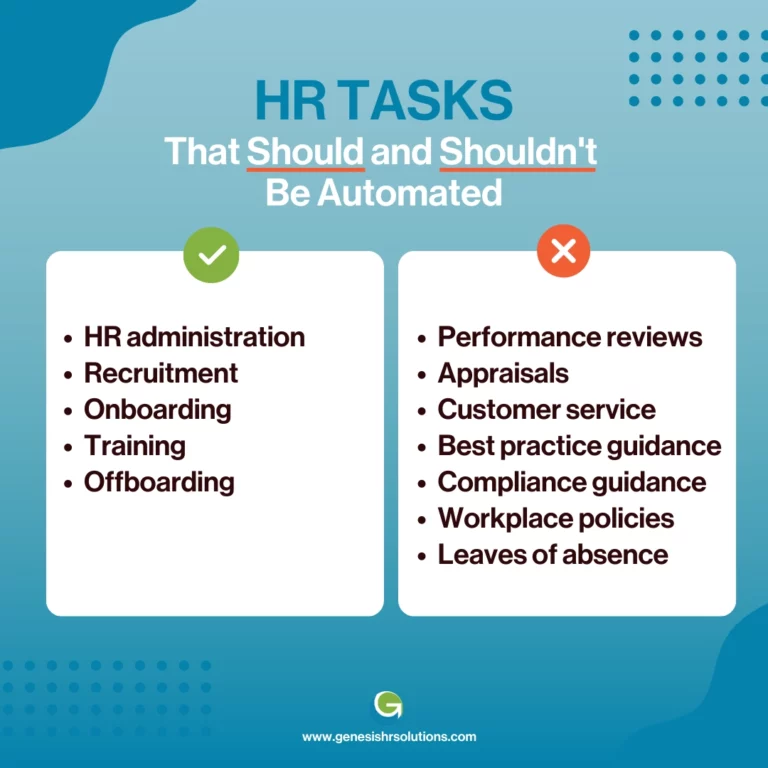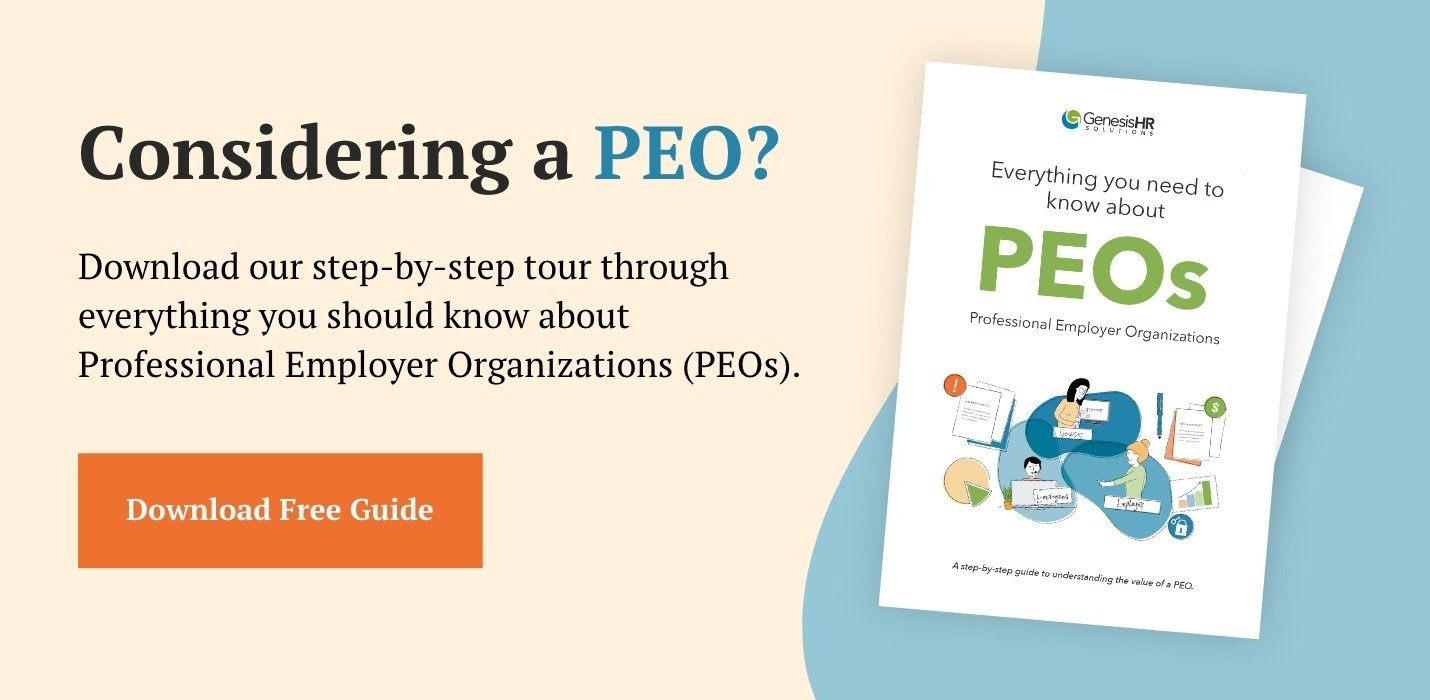These days, you’re as likely to hear about ChatGPT and OpenAI in meeting room conversations as you are about traditional business topics. People in every functional area are talking about—and experimenting with—artificial intelligence (AI) and automation tools, looking for ways to work smarter. In fact, many organizations have already begun implementing these tools and are starting to see results.
That’s why, in my opinion, the question isn’t “Will HR automation change everything?” but “How will HR automation change everything?” HR automation is already changing our world, and as HR professionals, we need to understand how these changes will affect our employers, employees, and the world of HR at large.
What is HR automation?
HR automation is the process of applying software and/or artificial intelligence to human resources workflows to digitize, automate, and streamline repetitive, laborious tasks.
HR automation is often positioned as making HR managers’ lives easier; after all, it’s capable of enhancing productivity and efficiency, and reduces time spent on low-value, tedious tasks. This technology presents opportunities for organizations including enhanced workflows, streamlined operations and improved customer experiences. However, it can have a dark side, too: HR automation can be disruptive and negatively impact HR functions by creating inconsistency, eliminating the personal touch, and causing contention within organizations by taking jobs away from people. HR automation also falls short in areas such as compliance and termination, where an expert’s knowledge is needed to clarify gray areas.
Worried that compliance mistakes could bring your business down? Download the Ultimate Small Business Compliance Checklist for valuable (human-created!) guidance.
How HR Automation Can Hurt & Where It Can Help
As an HR manager, my mind goes to the human aspect of human resources: I think unbridled HR automation could cause us to lose the personal touch that is required to be successful, relationally-driven organizations. Complete HR automation can hurt companies who use only automation for their client service and HR delivery.
As people guiding the HR function, we have the benefit of emotion and connection, which allows us to strategize, give best practice guidance, and identify and solve complex challenges collaboratively that automation just can’t do. In sticky situations, for example, in cases of compliance questions and terminations, having a living, breathing expert to guide you through difficulties is something you can’t simply replace with AI or tech.
Using AI technology can lead to intentional and unintentional discrimination in the workplace, resulting in costly lawsuits or investigations. Having live bodies to resort to in difficult times allows for clear guidance and leads clients down a path with the least amount of risk and exposure. For example, AI algorithms used to make employment decisions may be based on historical data sets that could be biased or discriminatory—benchmarking resumes or other job requirements based on protected characteristics, such as age, race, gender or national origin. When it comes to terminations, especially involuntary, we can’t always predict when they are going to occur, and being able to call a dedicated member and carry out all the important and compliant pieces quickly and efficiently—who always has the latest knowledge—is in the best interest of the employer.
A completely automated HR function can also lead to trust issues. How do you trust something you can’t converse with or that acts only as a search engine? A living, breathing HR business professional gives organizations the ability to have personal conversations and can source data and explain it in ways to help employers and employees alike gain trust in ways automation cannot.
However, from a PEO perspective, it’s clear also that HR automation has the ability to improve clunky processes and streamline simple tasks, making workflows faster and more efficient. If you have tasks that can be automated, it’s worth learning more about automation tools and then applying them to your organization if they will save you time and free up your staff to do more high-value work. For example, HR automation provides access to third parties that may be possible solutions for some of their pain areas, including applicant tracking systems, performance management, and employee engagement platforms.

What HR tasks could be automated?
HR Administration
- PTO/leave requests
- Leave of absence paperwork
- Separation memos
- Expenses
- Payroll
- Tax filing
- Performance management
- Employee handbook creation and management
Recruitment
- Job postings
- Job advertisements
- Response tracking
- Reviewing and prioritizing candidates
- Email workflows to potential candidates
Onboarding & Training
- Onboarding checklist creation
- Email notifications and approval workflows
- Form collection
- Document generation
Offboarding
- Offboarding checklist creation
- Exit interview scheduling
- Employee personal information updates
- Paycheck information updates
- Company property status updates/removal of access
What HR tasks should not be automated?
- Performance reviews
- Appraisals
- Customer service
- Best practice guidance
- Compliance guidance
- Workplace policies
- Leaves of absence
For the above HR tasks, you can’t replace having a human touch with automation. These each require a living, breathing HR expert in order to make strategic decisions and manage complex issues.
Should HR professionals be worried about HR automation?
If your organization’s HR function operates using HR automation to complete simple tasks and focuses its “people power” on solving complex challenges and service and delivery of knowledge—NO! You shouldn’t be worried (in my opinion). This type of HR automation can save companies time and money while freeing up talented HR staff to grow their businesses and serve customers.
At GenesisHR, we’re confident in the promise of our PEO to serve our customers through a mix of people and automation (when it’s a good fit). If you’re looking for experts who know HR inside and out and advanced technology to assist when needed, talk to our team—we’d love to show you the benefits of partnering with us.





